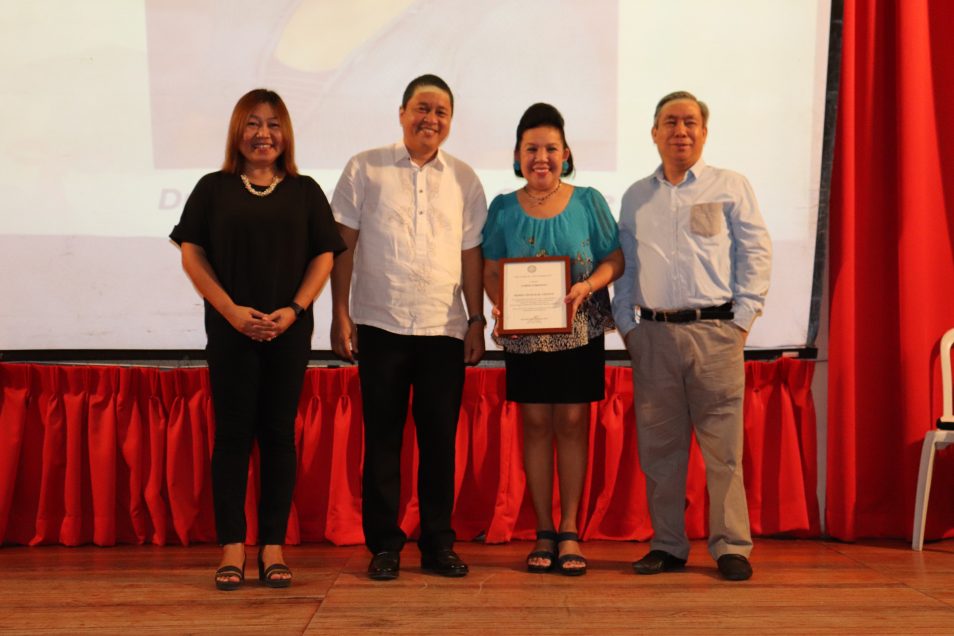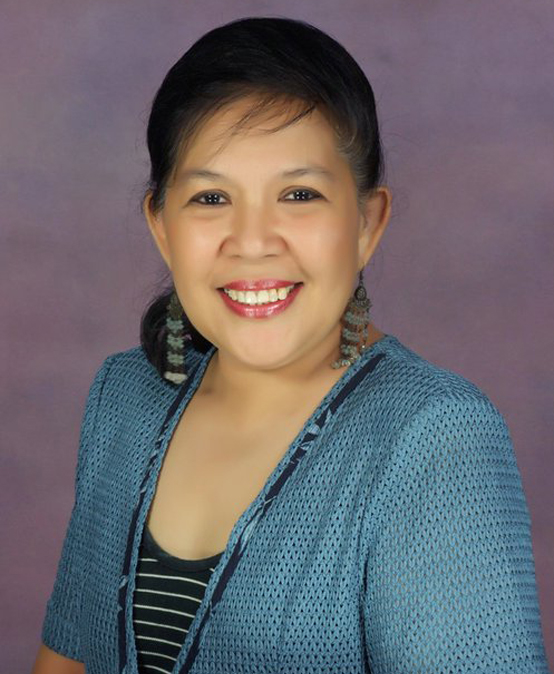Graduation Address, 23rd Graduation Exercises, SAITE; 9 a.m., July 8, 2019; Audio-Visual Theater I
by Maria Cecilia M. Genove
Vice-President for Academic Affairs Dr. Earl Jude Paul Cleope, Vice-President for Finance and Administration Dr. Jenny Chiu, University Registrar Dr. Giovanni Macahig, School of Agro-Industrial and Technical Education (SAITE) Dean Dr. Chuchi Sumalpong-Montenegro, Prof. Melody Angelique Camba-Rivera, Senior Pastor Rev. Dr. Noriel Capulong, members of the faculty and staff of SAITE as well as colleagues from other academic units, loved ones and significant others of Batch 23, the 45 scholars of the latest recipients of Animal or Swine Production NC II and Contact Center Services NC II, a blessed and pleasant Monday morning to everyone!
This 23rd Graduation Exercises has come a long way since SAITE graduated its first batch of NC II completers, to which I proudly belong, specifically for Contact Center Services. Thus, we share something in common, dear graduates, as we are alumni of the Silliman University School of Agro-Industrial Technical Education (SAITE).
Unlike commencement exercises held in the university and elsewhere for collegiate degree graduates, your graduation today, I am certain, spells a big difference from your previous graduation ceremonies. For one, you are all scholars, thus, your achievement is more meaningful as many, if not all of you, come from various educational backgrounds and academic endeavors. Moreover, age is not a hindrance for anyone who would want to aspire to get a National Certification or NC II. In fact, this is a skill or qualification added to your credentials, and there is nothing to lose, but there is much to gain. And, unlike regular classes having standard class schedules, SAITE has devised a mechanism where time is learner-friendly to accommodate would-be scholars who may be engaged in other endeavors earlier in the day.
At no other time in our history has the call to re-invent education been felt urgently as it is today. As educators and learners, we are at a time when we are admonished to re-think whether the education we have acquired matches the skills and jobs needed into the future of work and labor.
In our pursuit for a decent life, have we invested in skills to ensure better socio-economic outcomes? Can simple knowledge-sharing sustain us all in the 21st century and beyond? Will we see the day when so-called unsubscribed courses will take the lead and transform what we used to know as Technical-Vocational Education and Training (TVET) into skills for so-called green jobs to enhance the employability of workers for the transition to low-carbon economies, thus, promoting a safe and healthy environment?
Your decision to take the challenge and responsibility of being an NC II holder in Animal or Swine Production and in Contact Center Services is certainly well-received. As you have properly invested in such skills, you are sending a message that people should not languish on the margins of society. If we have more skilled Filipinos, technological progress translates into economic growth. If more of our young people would take time to expand their choices of a profession or a career, and consider blue-collar job potentials – which are even more high-paying and in-demand – then, we can compete in an increasingly knowledge-based global society.
We cannot underestimate the need for skills development as a key factor in the employability of workers and the sustainability of enterprises. We can enumerate some benefits of technical training. These are: better chances of employment; higher earning levels; increased job satisfaction; improved flexibility and mobility; lifelong learning; positive influence on children’s education in families; and, provides cognitive, physical, and societal benefits.
The world’s population is younger than ever today, with 1.2 billion people aged 16-24. Providing pathways into the world of work for young people is one of the greatest development challenges of our era. Better training in knowledge, skills, and competencies can help support decent work required for the jobs of today or tomorrow. The provision of relevant job skills can be a robust means of empowering people to seize employment opportunities or equip them for self-employment.
Recognizing the pivotal role of skills training, especially for young people, to increase their chances for employment, the 2030 Agenda for Sustainable Development has set a number of ambitious targets under Sustainable Development Goal Number 4 on quality education and Sustainable Development Goal Number 8 on decent work and economic growth.
These targets, among others, are: to ensure equal access for all women and men to affordable and quality technical, vocational, and tertiary education, including university; and, to substantially increase the number of youth and adults who have relevant skills, including technical and vocational skills, for employment, decent jobs, and entrepreneurship.
Are these targets possible 10 years from now? I must say these are manageable, doable, and certainly within our means if we put premium on technical-vocational education and training, and the immeasurable gains we can get for ourselves and for the country’s growth.
Today is only the beginning of a myriad of opportunities open for you all, dear graduates. Silliman University, through SAITE, has unleashed your potential. Make the most of this wonderful blessing. No achievement is ever small or insignificant if you have put your heart, mind, and your entire being into doing it and doing it very well.
As you leave the portals of Silliman, we share in your success. You may not know it yet, but the whole wide world welcomes you and waits eagerly for your God-given talents and abilities, honed further by the skills you have hopefully mastered.
Let this not be the finish line. Explore, discover, and study some more. The possibilities are endless; they are simply yours for the taking.
A big shout-out to Batch 21! Godspeed and congratulations for this singular achievement!

(L-R) School of Agro-Industrial and Technical Education Dean Dr. Chuchi Montenegro; Vice President for Academic Affairs Dr. Earl Jude Paul Cleope; graduation speaker and Instructional Media and Technology Center Director Dr. Ma. Cecilia Genove; and Vice President for Finance and Administration Dr. Jenny Chiu. (Photo by Denis Emperado)



